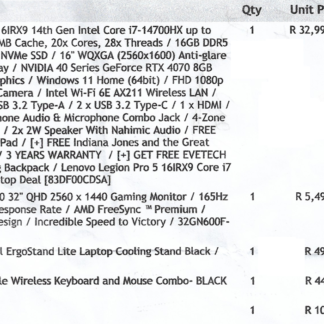Description
The Evolution of Competitive Gaming
The history of competitive gaming can be traced back to the late 1970s, when players began gathering to compete against one another in early video games. Over the decades, this niche hobby gradually evolved into a vibrant ecosystem, moving from informal gatherings in arcades to organized competitions that attracted significant attention. It was during the early 1980s that the first notable video game tournament, the “Space Invaders Championship,” took place, drawing players and audiences alike. This event, alongside others, laid the foundation for what would eventually be recognized as esports.
As gaming technology improved through the 1990s and 2000s, so did the potential for competitive play. The introduction of online multiplayer games, such as “Quake” and “Counter-Strike,” opened new avenues for competition, allowing players from different regions to face off against one another. This era saw the establishment of significant tournaments like the Cyberathlete Professional League, which not only highlighted the growing community but also set the stage for lucrative prize pools. The simultaneous emergence of streaming platforms in the early 2010s, particularly Twitch, revolutionized how audiences consumed competitive gaming. Gamers who had relied on localized events could now share their gameplay experiences with a global audience, magnifying the industry’s reach.
Sponsorships and partnerships became vital as companies recognized the marketing potential within gaming. Esports teams acquired corporate sponsors, and notable brands began to invest in teams and tournaments, accelerating the professionalization of the industry. The establishment of leagues such as the League of Legends Championship Series and the Overwatch League brought structure and regularity to competitive gaming. Case studies of successful teams, like SK Telecom T1 and Team Liquid, exemplify how smart marketing strategies, skilled players, and dedicated fan bases contribute to the backdrop of competitive gaming. Today, esports has transitioned from a niche hobby to a formidable entertainment segment, fostering worldwide engagement and redefining the cultural landscape of gaming.
The Impact of Professional Gaming on Society
The rise of professional gaming has significantly transformed societal perceptions of video games, elevating them from mere leisure activities to recognized career paths. This shift has been accompanied by a growing acceptance of gaming as a legitimate form of entertainment and competition, with professional gamers attaining celebrity status. Such recognition has inspired a diverse demographic, including younger audiences, to pursue gaming not only as a hobby but also as a potential profession. As a result, a new generation of players views competitive gaming as a feasible career, leading to increased participation in esports.
Professional gamers now serve as role models for aspiring players. Their success stories often highlight dedication, strategic thinking, and teamwork, qualities that resonate with young individuals seeking guidance in their developmental years. These role models can encourage positive behaviors, urging young gamers to hone their skills while promoting values such as discipline and perseverance. However, this influence also carries the responsibility to model good sportsmanship and ethical behavior as they are continuously in the spotlight.
Additionally, professional gaming fosters community-building, bridging gaps among individuals from diverse backgrounds. Online platforms and tournaments provide spaces where gamers can connect, collaborate, and share experiences, enhancing social interaction and reducing isolation. However, the mental health aspects of gaming also warrant discussion. While gaming can serve as an outlet and stress-reliever, excessive play can lead to issues such as addiction and anxiety, necessitating a balanced approach to maintain mental well-being.
Furthermore, the professional gaming industry faces challenges, including controversies surrounding player conduct and the need to strike a balance between competitiveness and sportsmanship. As the community expands, establishing guidelines for fair play and respectful behavior will be essential to preserve the integrity of the gaming environment. Overall, the impact of professional gaming on society is multifaceted, influencing perceptions, behaviors, and community dynamics.



















































Reviews
There are no reviews yet.